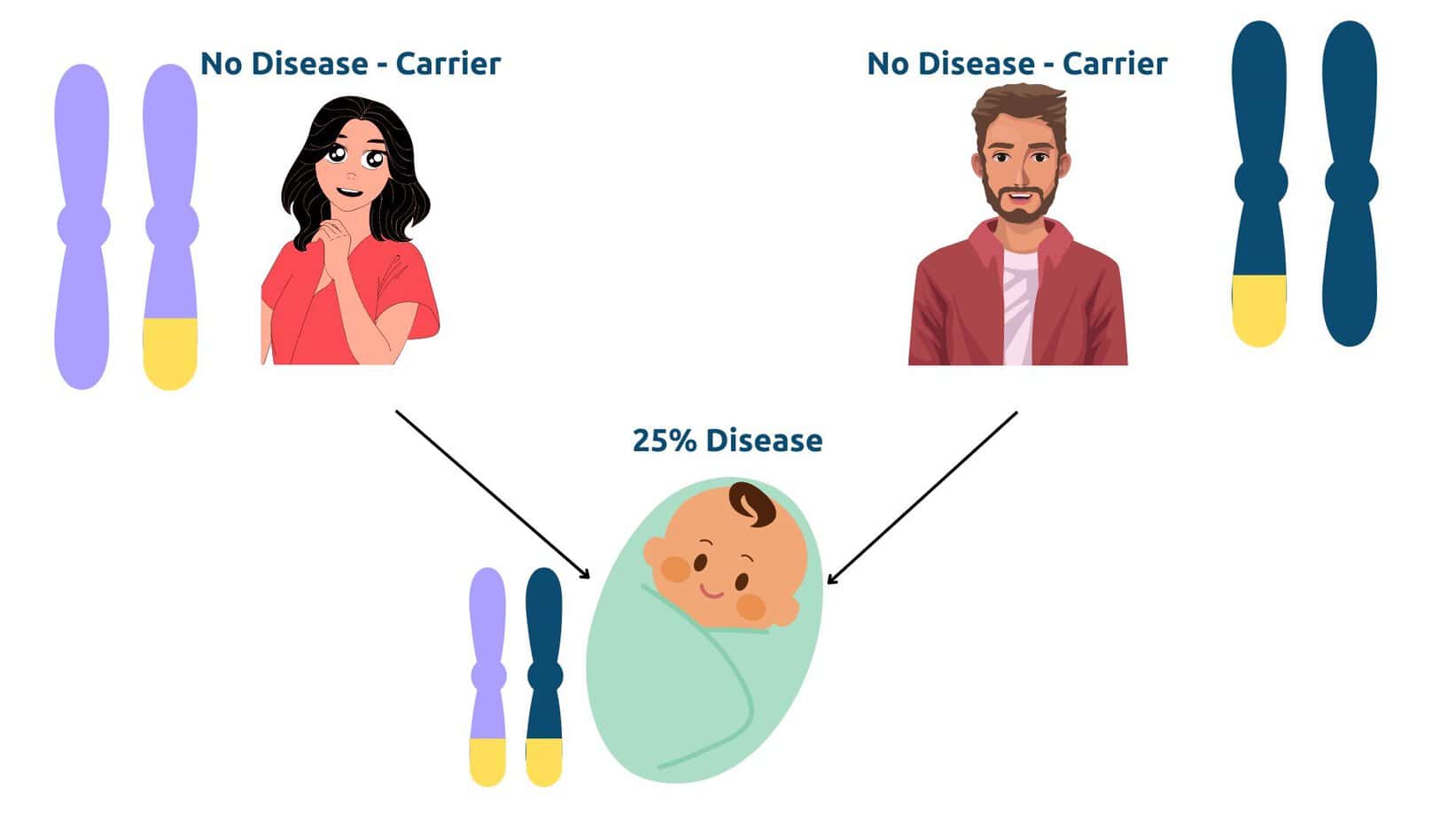Genetic Disease Carrier Screening
Genetic disease carrier screening preliminary knowledge: How do genetic diseases get transferred from parents to children?
Before diving into the topic of genetic disease carrier screening itself, we have to understand that genetic diseases can be spread from parents to children through the DNA of the sperm and the egg. When the sperm and egg combine, they become an embryo which eventually becomes a baby. The baby can have genetic diseases in the DNA inherited from their parents. Here is how:


In the first image, it is shown that if a carrier and someone who is not a carrier nor has the disease have a child, the child has a 0% chance of getting the genetic disease. However, they have a 50% chance of being a carrier.
In the second image, it is shown that if two carriers of a genetic disease have a child, the child has a 25% chance of getting the genetic disease, and they have a 50% chance of being a carrier.
What should I do to check for genetic diseases?
To check for genetic diseases in parents to determine the chances of children acquiring a genetic disease, use genetic tests such as Horizon™. The tests are not that hard to conduct. Learn more on how to use at Natera.
To conduct genetic testing on embryos, you can use PGT-M. However, Generation Next Fertility offers PGT-M only if genetic carrier screening shows the parents are both carriers and/or have the genetic disease.
However, if you would just like to screen your embryos for if they have abnormal number of chromosomes, we also offer PGT-A.
FAQ
What is genetic disease carrier screening?
Carrier screening is a test to see whether you have the a gene for a disorder, so you can determine the chances of your child getting that gene. If it is serious, then you can treat the child early on before it is too late.
How are most genetic diseases inherited?
Most genetic diseases require a gene with the disorder from the father and the same gene with the disorder from the mother. However, there are a few diseases that only require one gene from the mother. Such diseases are hemophilia, color blindness, and a few others. As a result, it is extremely important to test parents for genetic diseases.
Who should have genetic disease carrier screening?
All people planning to have a child should get tested for genetic diseases. It is important to know what genetic diseases your child can have to be able to treat them early on.

